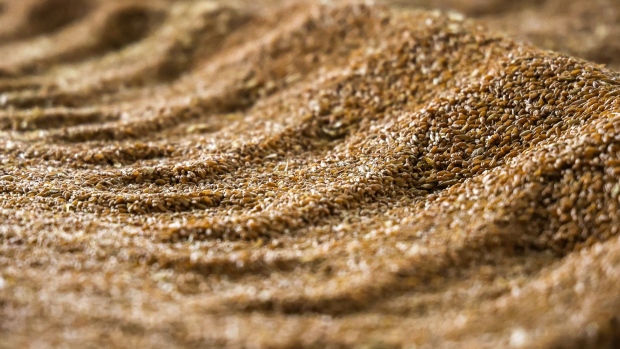Oct 11, 2022
Discounted Fuel, Grains Make Taliban Boost Trade With Russia
, Bloomberg News

(Bloomberg) -- Afghanistan’s Taliban-led government is working to build closer trade ties with Russia as it looks to import essential items like fuel and wheat before the harsh winter sets in, a top official said.
“We are working to maintain long-term and consistent trading ties with Russia,” Noorullah Azizi, the Minister of Commerce and Industry, said in an interview. Moscow’s offer of food grains and fuel at a “discounted” rate, as it reels under severe western sanctions, make the deal more appealing for cash-strapped Afghanistan.
“If Russia didn’t offer us a discount rate, we’d look to our immediate neighbors, who have abundant oil and gas and food,” Azizi said.
Ties between Moscow and Afghanistan have grown following the US exit last year. Russia is one of the few countries to keep its diplomatic mission in Kabul open, even though, like the rest of the world, it doesn’t formally recognize the Taliban government.
Azizi said that his government’s priority is “poverty alleviation” through trade expansion amid warnings from the United Nations that more than half the country’s 40 million people face acute hunger.
Relief organizations and UN agencies are working to respond to the economic and humanitarian crisis that erupted after the country was cut off from the global banking system and left without international aid, which accounted for more than 40% of its GDP.
The current trade agreement with Russia, the Taliban’s largest since regaining power, includes one million tons each of gasoline and diesel, half a million tons of liquefied petroleum gas, and two million tons of wheat.
Azizi anticipates that cheaper imports of the items, whose prices have risen sharply since the Russian invasion of Ukraine, will reduce costs for his country by more than 20%.
Azizi expects the country’s trade deficit, currently at $4 billion, to fall to $3.5 billion during the current fiscal year, which began March 21, because exports are set to grow by as much as 50%. In the first six months alone, Afghanistan has exported $800 million worth of goods -- largely dried fruit, pine nuts and saffron -- compared to $1 billion in the entire previous fiscal.
The country imported approximately $5 billion worth of goods, mostly food and fuel, last year. This compares to more than $2 billion so far this year.
The country’s largest trading partner is Iran, followed by India and Pakistan. Russia so far was not a significant trade destination under the previous US-backed government.
©2022 Bloomberg L.P.








